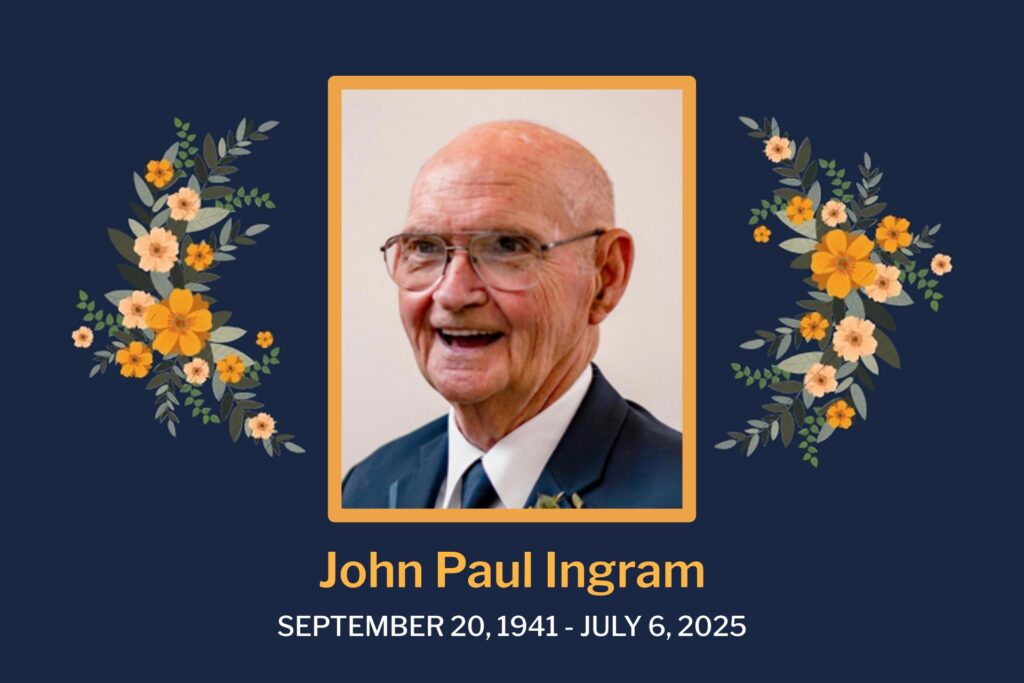BUCKHANNON – A Buckhannon woman who admitted to forging the signature of a local doctor – her husband, Ali Khan – on hydrocodone prescriptions in order to obtain the painkiller for herself was sentenced to five years of probation Monday in Upshur County Circuit Court.
Teresa Diane Khan, 56, of Buckhannon, pleaded guilty to one count of obtaining a controlled substance by means of fraud, forgery or deception, a felony, during a pretrial hearing in front of 26th Judicial Circuit Court Judge Kurt Hall Monday morning.
Khan was indicted during the September 2018 grand jury term on 12 counts of obtaining a controlled substance by means of fraud, forgery or deception. At Monday’s pretrial hearing, Khan’s attorney, Karl Kolenich, told Hall he and Upshur County prosecuting attorney David Godwin had reached a plea agreement.
In accordance with the agreement, Khan pleaded guilty to one of the 12 counts and waived her right to a presentencing investigation in order to be sentenced immediately; in exchange, the state, represented by Godwin, agreed to dismiss the remaining 11 counts and request alternative sentencing.
Khan said she’d recently been diagnosed with a mood disorder, bipolar II, and that symptoms related to the diagnosis had affected her judgment. Since being indicted, she told Hall she’d been working with a psychiatrist to find the right combination of medicine.
When Hall asked Khan to explain what she’d done, she said that in early February 2017, she’d had knee replacement surgery and was in a great deal of pain from the operation.
“I had a tremendous amount of pain,” she said.
Khan explained that she had been working in her husband’s office at the time and had asked another person employed there to write the prescription; she had merely signed them, she said.
Godwin, the prosecuting attorney, said the person who wrote the prescriptions thought Khan was going to obtain her husband’s signature on them. However, Khan “was taking them directly to the pharmacy to get filled” after signing the prescriptions herself, he said.
Kolenich called three character witnesses, including Allyson Andrews, a physician’s assistant with Community Care of West Virginia in Buckhannon, who is currently treating Khan.
Andrews testified that although Khan suffered from several medical conditions, her bipolar disorder, which had been left untreated until several months ago, “was really sort of the central issue.”
“I think the bipolar can be treated well,” Andrews said. “I think taking her outside of [an environment in which she could receive specialized medical treatment, therapy and counseling services] would be detrimental in terms of her treatment plan.”
Denise Straight, who said she’d known Khan for 10 or more years, also testified on Khan’s behalf, calling Khan “impressive, compassionate and always willing to give.”
“She is really an amazing person,” Straight said. “She’s been struggling with something … with the pain and stuff, and she is just now receiving treatment, and she is definitely a large asset to our community.”
Kolenich said Khan’s lack of criminal history; involvement in the community, including her active role in Buckhannon Community Theatre; and the fact that her actions didn’t involve violence or property damage made her a good candidate for alternative sentencing.
Khan apologized to her friends, family and the community.
“I’ll do everything in my effort to be a better person for my family, my friends and my community,” she said.
Hall suspended Khan’s prison sentence and instead sentenced her to five years of probation, saying she would be required to follow through with her treatment plan and log 80 hours of community service every year of that period.
“Mrs. Khan, you’re not jail material, you’re not prison material,” the judge said, “… but this is also on the condition that you’re not to work in a doctor’s office or in any kind of position that puts you anywhere near prescribing medication.”
Hall ordered Khan to pay a $50 per month probation supervision fee and a $1 per month Community Corrections fee beginning Jan. 1, 2019.
“Don’t feel like you’re a failure,” he told Khan. “You’re not alone. At least you’re still alive. A lot of people getting theirs off the street are dying.”
Khan’s pretrial hearing was just one of more than a dozen that took place before Hall Monday.
The judge revoked the bond of two individuals – Carl Edward Tussey II and Rebecca Glover – for recording positive drug screen results.
Tussey, 35, was indicted on one count of possession of a controlled substance with intent to deliver, methamphetamine, a felony; one count of possession of a controlled substance with intent to deliver marijuana for remuneration, a felony; and two counts of possession of a controlled substance, a misdemeanor, according to the indictments in the Upshur County Circuit Clerk’s office.
Tussey’s attorney, James Hawkins Jr., had filed a motion to continue the trial until April, noting Tussey had recently been indicted in September. Hall granted the motion, but when Tussey tested positive for methamphetamine use, the judge revoked his bond.
Tussey told Hall prior to the test he hadn’t used any illegal substances.
“I’m tired of him lying more than anything,” Hall said. “This is the second time this has happened.”
Hall told Hawkins he could prepare a motion to readmit Tussey to bail.
The judge also revoked the bond of Rebecca Glover, 35, despite the fact that Godwin had been prepared to dismiss the entire indictment against her.
Glover was indicted in the September 2018 term of grand jury on one count of possession of a controlled substance with intent to deliver, a felony, and one count of possession of a controlled substance with intent to deliver marijuana for remuneration, a felony.
Godwin told Hall Glover had possessed a relatively minimal amount of methamphetamine – 2 grams – and marijuana – 1 gram. In addition, when the arrest was made, phones that were seized containing potential evidence were never processed by the Upshur County Sheriff’s Department, the prosecuting attorney said.
Hall advised Godwin to tell the sheriff’s department he was “perplexed” as to why they hadn’t processed the phones.
Glover’s attorney, David Fuelhart, said he didn’t believe there was sufficient evidence for the state to move forward with prosecution of the case.
But after Glover admitted to using methamphetamine and screened positive for use, Hall said he would take Godwin’s motion to dismiss the indictment under advisement until Friday, Dec. 7, and ordered that Glover be incarcerated until that time.
Hall said he could tell Glover was under the influence of methamphetamine.
“Here, Mr. Godwin’s getting ready to dismiss your indictment and your come in here on meth,” the judge said. “It’s just dumb. I don’t want Mr. Godwin to have to proceed if he doesn’t think he has the evidence to proceed, but I’m going to defer my decision on the indictment until noon on Friday.”
Also on Monday, Connor Bryan McCauley, 28, entered into a plea agreement with the state. McCauley was indicted on two counts of delivery of a controlled substance, methamphetamine, a felony, during the September 2018 grand jury term.
Soon after, he was arrested on one count of grand larceny, a felony, and one count of petit larceny, a misdemeanor, for allegedly stealing several items from his father, David McCauley, and selling them.
McCauley, who was represented by attorney Brian Bailey, pleaded guilty to one count of delivery of a controlled substance, methamphetamine, a felony; in exchange, Godwin agreed to dismiss the second count included in the indictment as well as bound-over charges of grand larceny and larceny, saying McCauley would be required to pay restitution to the victim.
According to the terms of the agreement, Godwin said he would recommend alternative sentencing on several conditions – that McCauley not violate bond, that he not abscond and that he immediately enter a residential drug treatment facility following his sentencing.
Meanwhile, Hall said he would hold the guilty plea in abeyance.
Hall also granted a motion on McCauley’s behalf to reduce his bond to $15,000 cash or surety and $2,500 personal recognizance.
A presentence investigation will be conducted, and McCauley’s sentencing hearing is scheduled for 2 p.m. Jan. 16, 2019.
During Monday’s court proceedings, the following plea agreements were also reached:
-Joseph M. Wagner, 36, pleaded guilty to one count of possession of a controlled substance, methamphetamine, a misdemeanor, and was sentenced to six months in jail, fined $1,000 and ordered to pay court costs within 180 days.
-Caleb Michael Daugherty, 21, pleaded guilty to possession with intent to deliver a controlled substance, a felony, and being a prohibited person in possession of a firearm, also a felony.
Daugherty’s attorney, Hawkins, requested deferred adjudication for a period of two years.
Hall said he would hold Daugherty’s plea in abeyance until a presentence investigation report has been conducted. At a hearing in January, Hall will announce whether he will enter Daugherty’s plea or grant the motion for deferred adjudication agreement.
-Robert James Taylor, 32, pleaded guilty to being a prohibited person in possession of a concealed firearm, a felony.
Hall sentenced Taylor to eight years in a state correctional facility, gave him credit for time served and ordered that court costs be repaid in one year.
-Tiffany Brook Day, 30, pleaded guilty to one count of delivery of a controlled substance, buprenorphine, a felony.
However, according to a deferred adjudication agreement reached with Godwin and accepted by Hall, the judge agreed to hold the guilty in abeyance for two years.
If Day meets the conditions of the deferred adjudication agreement, after the two-year period is over, she will plead guilty to the misdemeanor offense of possession of buprenorphine, a lesser offense.
Hall ordered Day to request that her doctor develop a written plan for tapering her off buprenorphine within 30 days.
He also ordered her to pay court costs within 180 days, as well as a $10 per month probation fee and a $1 per month Community Corrections fee beginning Jan. 1, 2019. Day must also complete 80 hours of community service each year of the two-year period.














